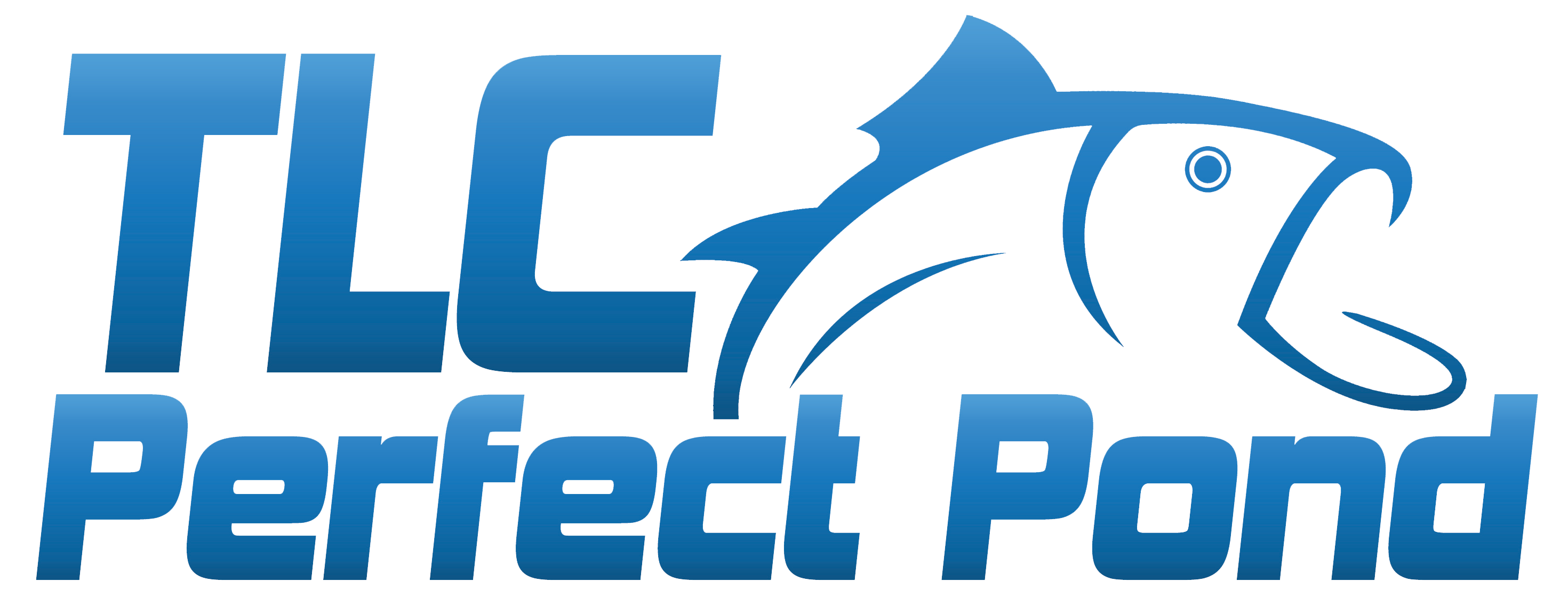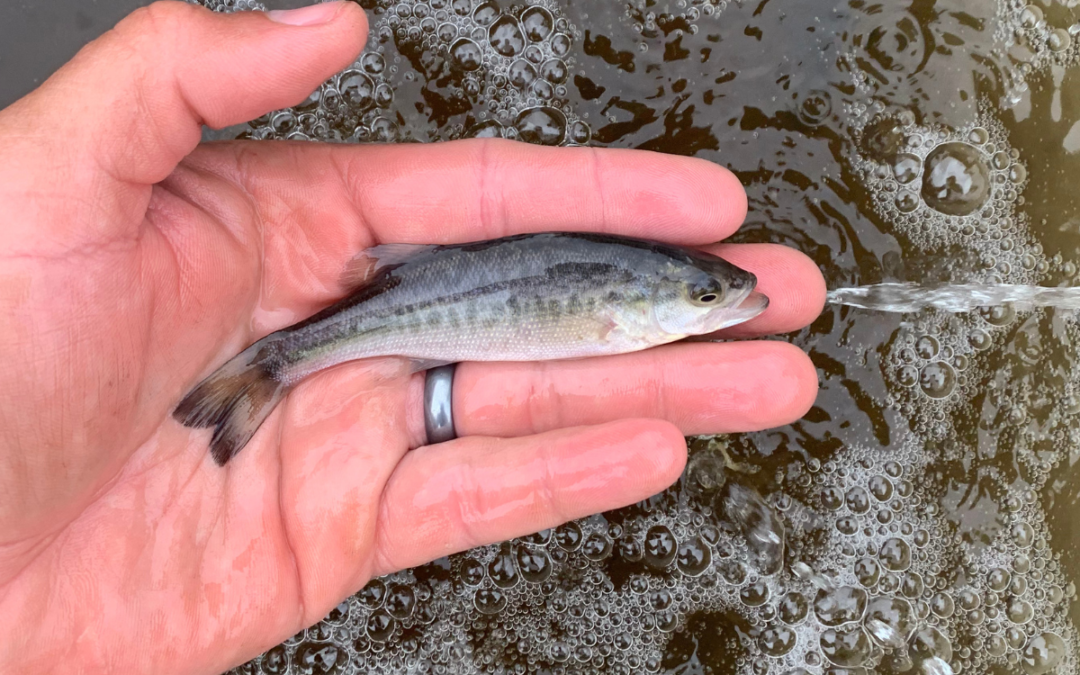Managing a pond or lake is a long-term project that requires year-round attention. This is why many pond owners in south GA and north FL hire us to take care of some of these maintenance practices for them. Just as you change gardening practices for different seasons, effective pond management relies on season-specific tactics to optimize results. Below is a guide with seasonal recommendations to maintain a healthy fishery.
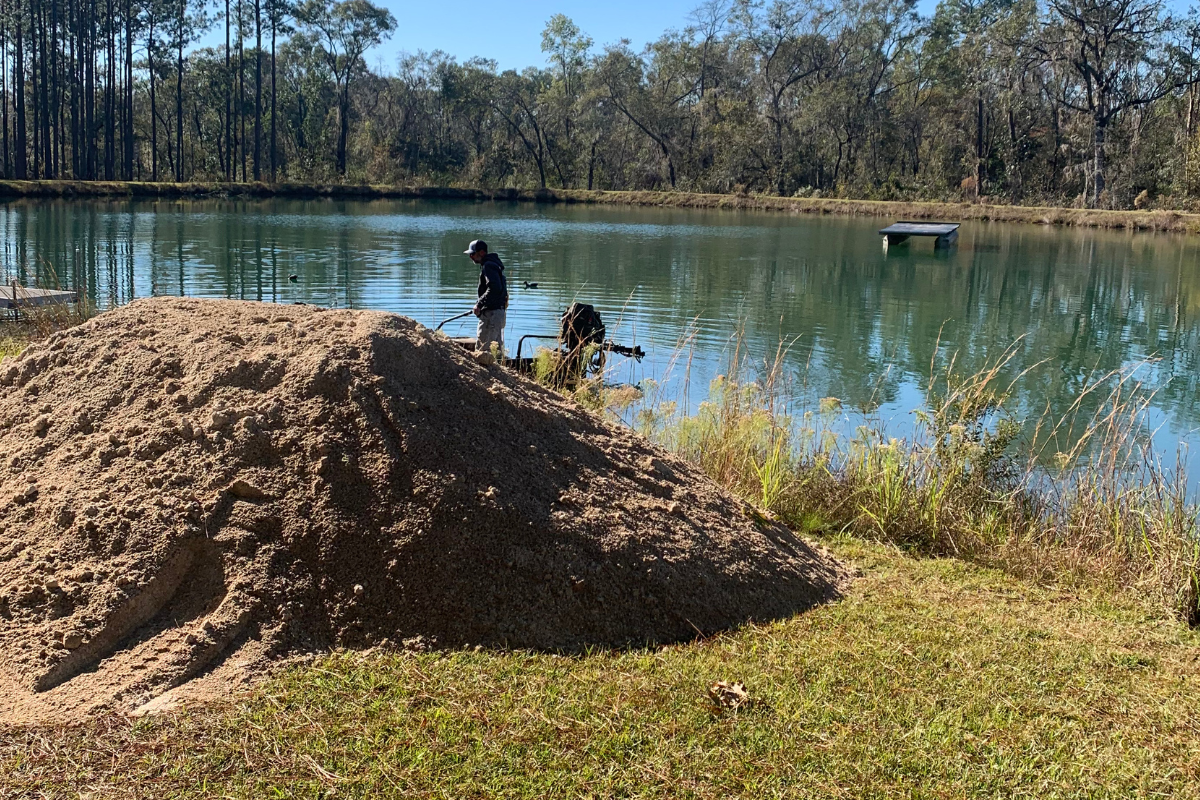
Winter Pond Management Strategies
Focus on Habitat Improvement
During the winter months, predatory fish and aquatic vegetation are largely dormant. This makes the winter months an ideal time for habitat enhancement. Make habitat improvements by upgrading submerged structures or introduce artificial habitats to support fish populations. Take advantage of clearer waters to place new habitat structures without obstruction from vegetation. Also inspect fish feeders, replace batteries, and ensure timers are functional.
Liming Your Pond
Winter is an excellent time to test and adjust pond water quality metrics with lime. Pond water should be tested for alkalinity, hardness, and pH before liming. This will ensure the appropriate amounts per acre are added to the pond. Liming will help release bound nutrients from the pond sediment, making the pond more fertile for the spring months.
Spring Pond Management Strategies
Your pond will come alive in the spring months, making it the busiest season for pond management practices. This is the time to build the foundation for a productive year. Essential spring pond management practices include fertilization to promote phytoplankton — a key source of food for forage fish. You will also want to begin monitoring aquatic vegetation to prevent overgrowth later in the year.
We recommend that all our customers have an electrofishing population survey conducted each spring to assess the health of the fish populations, the size class distributions, and the predator-prey balance. During this survey, we will also remove unwanted species from the pond. These might include species like gar or bowfin that most pond owners find undesirable.
Spring is spawning season for many species. Bass, crappie, shad, and bluegill spawn sequentially, making it critical to harvest excess fish to reduce predation on forage populations. A good population survey will provide insight into how many fish you should be harvesting throughout the warmer months. Lastly, spring should also signal restarting your feeding programs for forage fish like bluegill.
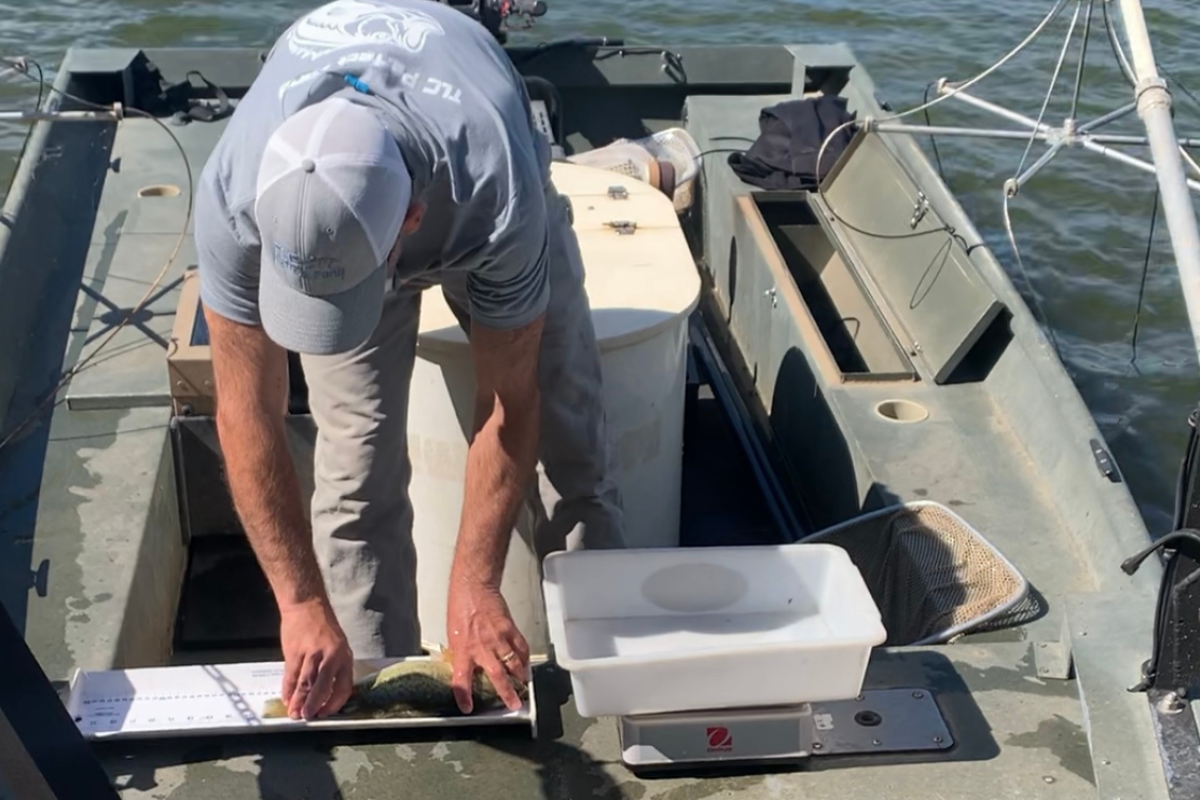
Summer Pond Management Strategies
In the summer months you’ll want to shift to maintaining balance in your pond and avoiding crises. Monitor dissolved oxygen (DO) levels closely , especially during the early mornings when fish “piping” at the surface may signal oxygen depletion.
Overgrown aquatic plants consume oxygen during low-light conitions. Address vegetation early to prevent issues. Also install aerators, fountains or diffusers to boost oxygen levels during critical periods.
Ponds smaller than 3 acres are more vulnerable and at a higher risk for oxygen depletion. This is due to limited surface area and wave action. The preventative measures mentioned above are critical for these smaller ecoystems.
Fall Pond Management Strategies
Fall will signal increased fish activity as the largemouth bass prepare for winter, and aquatic vegetation growth will usually slow as temperatures cool.
Fall is a great time to conduct a second electrofishing survey to evaluate spring and summer pond management efforts. This second survey will help assess the recruitment of spring hatchlings, allow you to monitor growth rates, and further analyze predator-prey dynamics. The fall electrofishing survey is also a great time to continue removing any unwanted predators in the pond.
Lastly, we find that fall is a great time for additional stocking of larger fish. After analyzing the results from the fall electrofishing survey, we’ll often suggest stocking mature bluegill or 8-12″ largemouth bass. These fish are guaranteed to spawn in the spring, which quickly improves unbalanced population dynamics.
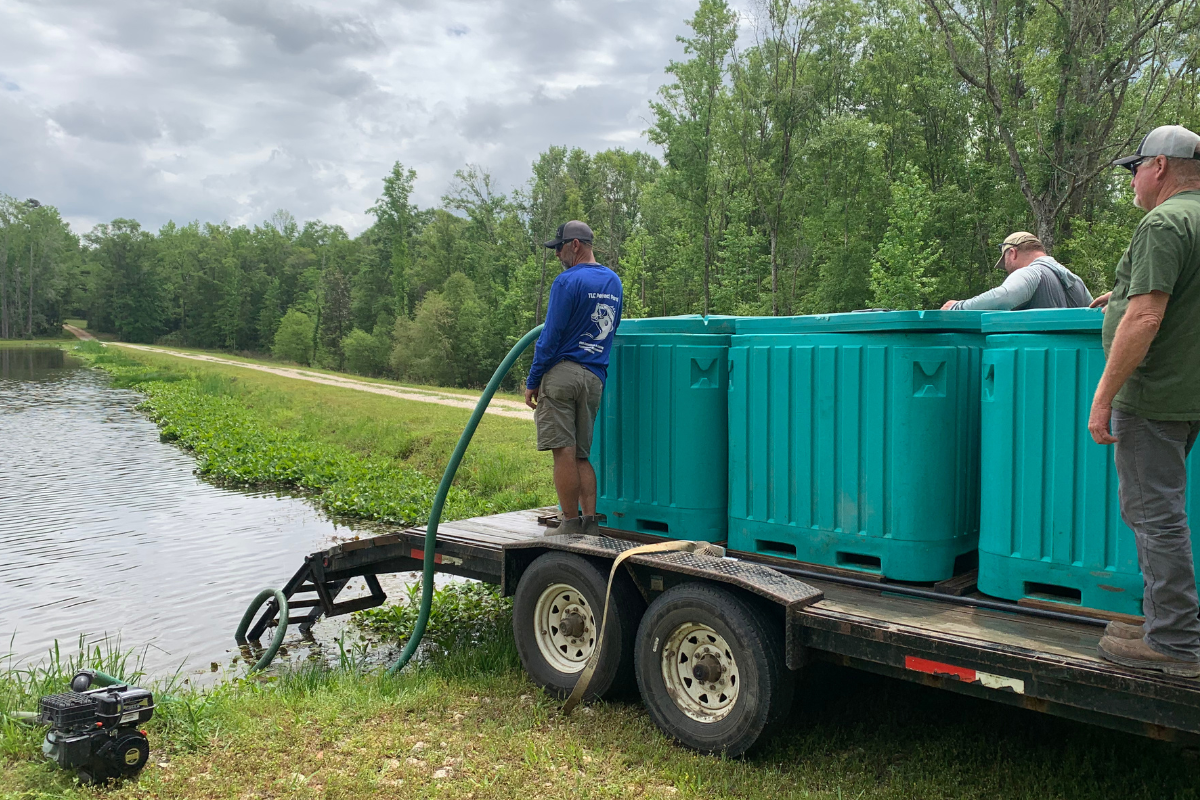
Let Us Help with Your Pond!
By tailoring pond management practices to the seasons, we can maintain a thriving ecocystem for our customers while minimizing reactive measures. Consistent, season-specific pond management ensures more time spent enjoying your pond and less time addressing preventable issues.
If you’re in the south GA or north FL region and need help managing your pond or lake, complete this form and we’ll contact you to schedule a time to meet.
